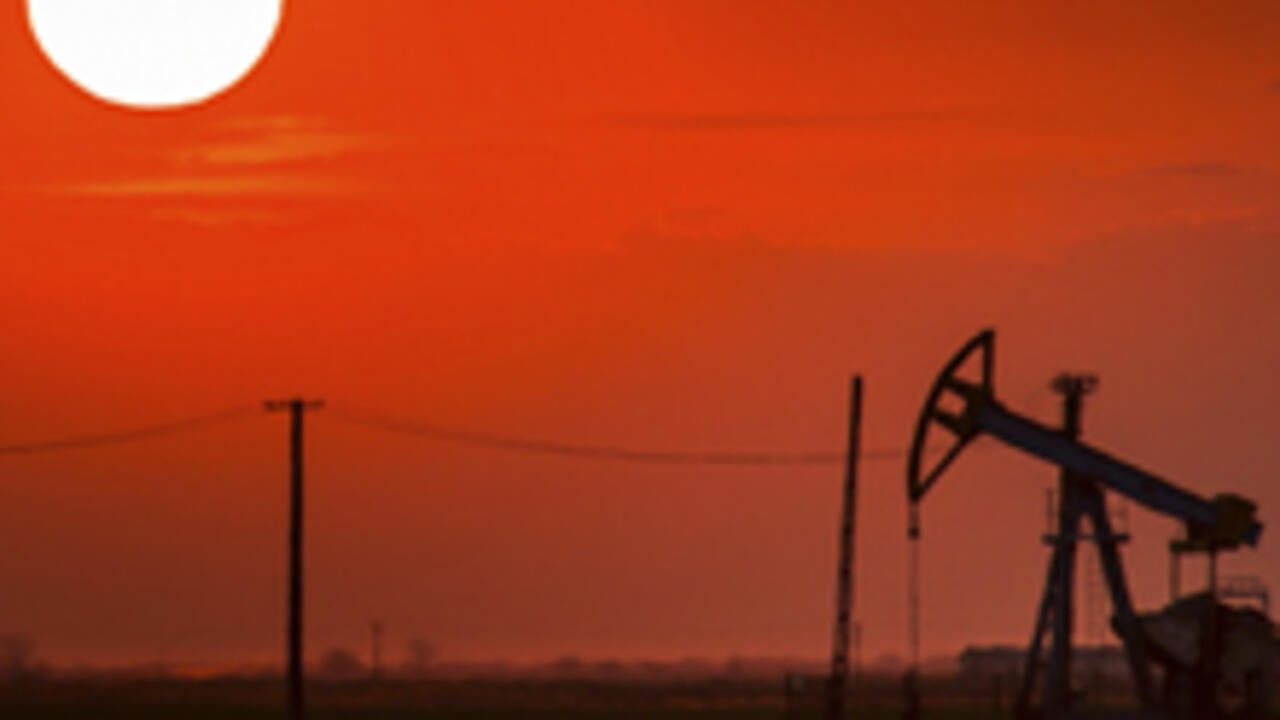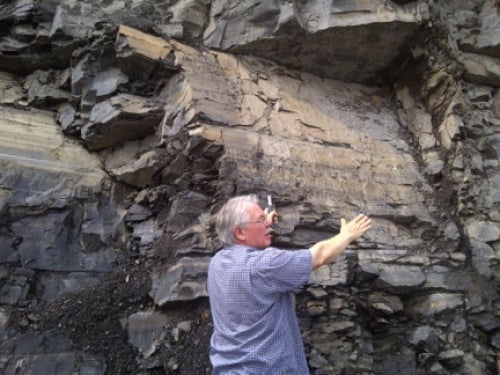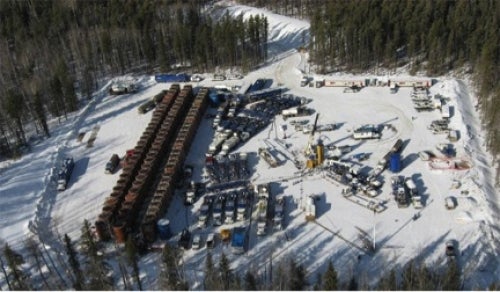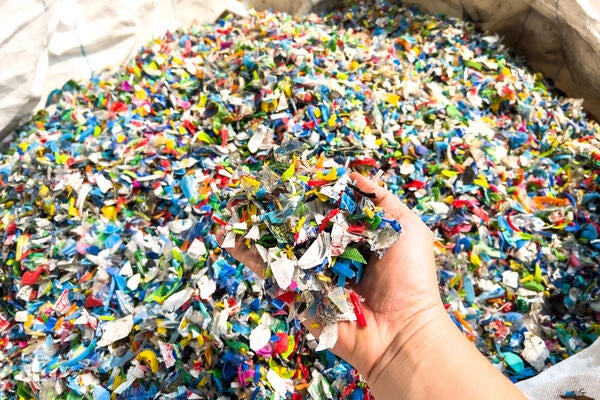
Climate change: Oil and gas wells are leaking greenhouse gas
Wells that leak methane are a bigger risk to environment than fracking, say Waterloo researchers

Wells that leak methane are a bigger risk to environment than fracking, say Waterloo researchers
By Elaine Smith Marketing and Strategic CommunicationsOil and gas wells that leak methane, a potent greenhouse gas, are a bigger risk to the environment than fracking, according to a report by University of Waterloo researchers.
Hydraulic fracturing, better known as fracking, is a controversial method used by the energy industry that involves injecting high-pressure water into wells to extract oil and gas from rock. “Hydraulic fracturing is not the main risk,” says Maurice Dusseault, a professor of Earth and Environmental Sciences. “The main risk is poor well completion that can cause methane leakage.”

Maurice Dusseault, professor of Earth and Environmental Sciences, examines natural fractures in oil source rock
Methane is not a large public health risk, nor is it toxic, explains Dusseault. Its major impact is on climate change.
Dusseault, along with Daniel Macdonald, a graduate student in Earth and Environmental Sciences and Richard E. Jackson, an adjunct professor at Waterloo who works at Geofirma Engineering Ltd., recently produced a report that details the risks and explores solutions.
The risk can be mitigated with political will from governments and attention from the major natural resource companies, says Dusseault, who, along with his colleagues, is urging that such measures be taken.
Methane from leaking wells can also enter shallow aquifers and cause sour drinking water, something that isn’t toxic, but can make the groundwater useless, Dusseault noted. In rare cases, when seepage accumulates in a closed space, it can also be an explosion hazard, although few cases are known in Canada of this happening.

Shale gas well pad in British Columbia
“I don’t want to raise unreasonable fears,” said Dusseault. “This is not a huge public health issue, but I do not agree with the widespread view in the oil and gas industry that the problem can be completely ignored – and (U.S.) President Obama agrees that methane escaping into the atmosphere is not desirable.”
Dusseault said he believes that in Alberta and British Columbia, the oil and gas industries are well regulated and do an excellent job compared to almost any other location worldwide. However, he and his colleagues suggest that they could do even more by ensuring that wells are more leakproof.
“The natural resources industry and government regulatory bodies are developing resources that belong to each province --that is, to you and me,” said Dusseault. “They have a responsibility to act and address these concerns, not just dismiss them. That is not good corporate governance or good government.”

Hand holding small pieces of cut colourful plastic bottles, which Waterloo researchers are now able to convert into high-value products using sunlight. (RecycleMan/Getty Images)
Read more
Sunlight-powered process converts plastic waste into a valuable chemical without added emissions

Read more
New medical device removes the guesswork from concussion screening in contact sports using only saliva

Read more
Here are the people and events behind some of this year’s most compelling Waterloo stories
The University of Waterloo acknowledges that much of our work takes place on the traditional territory of the Neutral, Anishinaabeg, and Haudenosaunee peoples. Our main campus is situated on the Haldimand Tract, the land granted to the Six Nations that includes six miles on each side of the Grand River. Our active work toward reconciliation takes place across our campuses through research, learning, teaching, and community building, and is co-ordinated within the Office of Indigenous Relations.